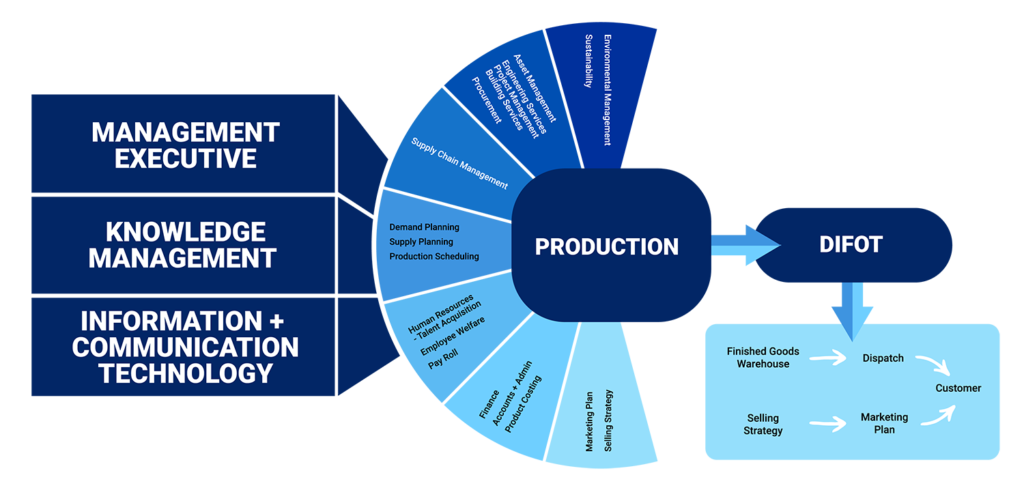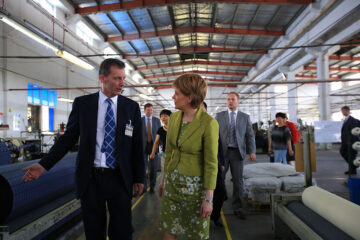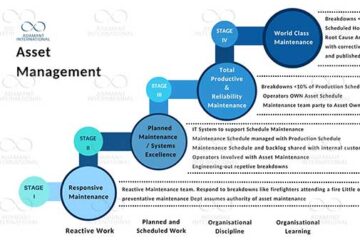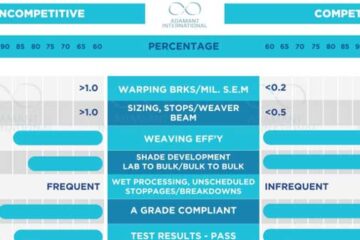Author John O’Connor CEO
How efficient is your organizational structure? Are all stakeholders aligned toward supporting production processes to achieve DIFOT (Delivery In Full, On Time) in a structured and safe environment? Is the executive management team effectively supporting production efforts through robust information and communication technology systems? Moreover, how effectively is knowledge shared within your organization?

Ensuring the adequacy of production leaders’ training in leadership and technical competencies is vital. Additionally, evaluating the firmness of the production management team in managing their teams and fostering effective collaboration with service departments is essential.
An effective organizational structure entails comprehensive documentation, encompassing process controls, job descriptions with clearly defined responsibilities, levels of authority, and personal key performance criteria. The cultivation of a desired organizational culture begins with meticulous recruitment, induction processes, and ongoing training programs, catering to both new and existing employees’ skill development needs.
Regarding service departments, it’s crucial to ensure they are aligned with production teams, offering support rather than exerting authority over their responsibilities. Divorcing authority from responsibility often leads to resentment and conflicts of interest. For instance, conflicts may arise when production planners and schedulers hold authority over production management teams responsible for delivery without adequate communication and negotiation regarding schedules.
Effective communication and collaboration between key production stakeholders and schedulers are imperative for achieving weekly production schedules. Production managers and stakeholders responsible for schedule attainment should have the opportunity to discuss proposed schedules before finalization, considering resource availability’s impact on production.
Divorcing authority from responsibility can breed conflicts and undermine efficiency. Therefore, decisions should align with the roles and responsibilities of those directly involved in the processes. Moreover, the factory’s capabilities must align with marketing plans and selling strategies, emphasizing the importance of quality, service, and timely delivery over price.
Enhancing Knowledge Management
Efficient knowledge sharing is essential for organizational success. In textile manufacturing environments, robust knowledge sharing ensures well-documented process controls, adequate training for machine operators, and a culture of getting things right the first time.
Identifying key knowledge holders and implementing strategies for sharing and documenting knowledge are crucial. A comprehensive training plan for all employees, including cross-skilling, up-skilling, and succession planning, is essential for maintaining a dynamic and transparent organization.
Unfortunately, many organizations lack a structured approach to knowledge sharing, leading to knowledge hoarding and job insecurity. Individuals who withhold knowledge, known as “White Knights,” may temporarily solve problems but fail to address underlying issues or prevent recurrence.
Indicators of inadequate knowledge sharing may include high absenteeism rates, employee injuries, labor turnover, and difficulties in recruiting qualified personnel. Poor housekeeping standards often accompany ineffective knowledge management, compromising employee safety.
In conclusion, enhancing organizational effectiveness and knowledge management requires a strategic approach encompassing robust communication, collaboration, documentation, and training initiatives. By fostering a culture of transparency, continuous learning, and accountability, organizations can achieve sustainable growth and competitive advantage in today’s dynamic business landscape.
To discover how Adamant International can elevate your textile manufacturing operations, visit our website https://www.adamantinternational.com.au or contact us via email at joc@adamantinternational.com.au or by phone at +61 411 102 572.
Let us help you unlock the full potential of your assets and drive unparalleled efficiency and performance.









